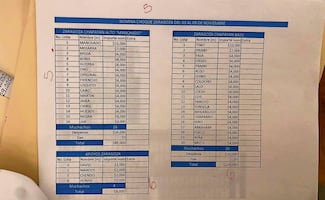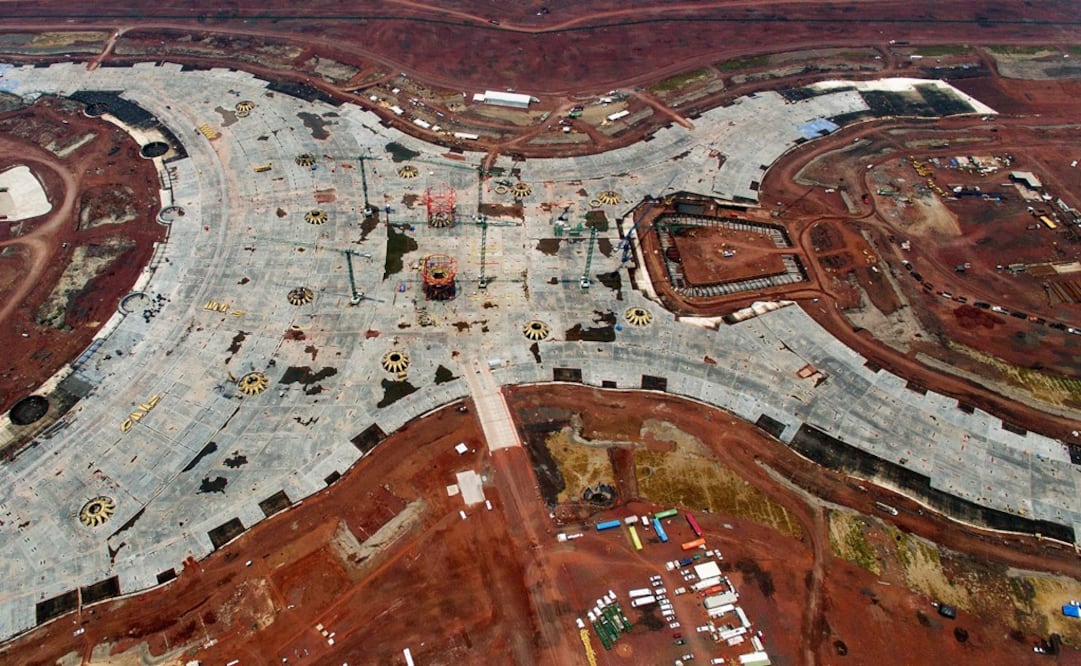Más Información

Buscadora asesinada presenta lesiones por arma punzocortante: Fiscalía; recientemente participó en rastreo de un desaparecido

VIDEO: Avión militar con miles de pesos en efectivo se accidenta en Bolivia; policía dispersa con gas lacrimógeno rapiña

Artículo 19 exige investigación y protección al comunicador Víctor Badillo; fue atacado en instalaciones de su medio en Nuevo León

Hallan cuerpos de dos mujeres en caminos de terracería en Silao e Irapuato; difunden fichas de búsqueda de otras 12 jóvenes

Harfuch: se investiga narconómina de "El Mencho" dada a conocer por EL UNIVERSAL; no hay funcionarios ligados a indagatorias, indica
Passengers who use Mexico City's airport pay an Airport Tax (TUA) ; nevertheless, the resources obtained through the TUA will be used to pay the debt that resulted from the cancellation of the Texcoco airport and for the improvement or expand the airport .
In all airports , the Airport Tax is used for the improvement and expansion of the facilities but since the government used the tax as collateral to obtain resources to finance the construction of the Texcoco project but after the project was canceled, the passengers will pay the debt.
According to the Communications and Transports Ministry (SCT) , the cancellation of the Texcoco airport created a debt of USD $6,000 million in bonds and USD $30,000 million in trading securities .
According to official documents, in December 2018, the federal government launched an offer to repurchase the bonds for USD $1,800 million, as well as payment of interest rates and the annual repurchase of USD $200 million of the bonds guaranteed by the Airport Tax in order to pay the debt in 19 years.
Rogelio Rodríguez,
a lawyer specialized in Air and Space and Constitutional Law , explained that the federal government repurchased 20% of the bonds issues and renegotiated the other 80% because the Airport Tax will be used to pay the debt.
“ Mexico is a unique case in the world because all the Airport Taxes are paid for the improvement of an airport, for its expansion and improvement, and we are paying (the tax ) to finance the debt of a government decision that (was made) in the way of dismissing all the investment and undertake the debt,” he explained.
The lawyer added that the resources obtained from the Airport Tax were allocated to pay the bonds, there, these resources can't be used for the construction of the Santa Lucía airport or to expand the Mexico City airport and instead, all the infrastructure will be built using the federal budget .
In April 2018, the 80460 trust paid USD $56,856,419,400 to the Mexico City Airport Group (GACM) as a compensation for the Cession Agreement of the Airport Tax.
In 2018, airlines also paid USD $9,892,523,200 in Airport Taxes , through the 2172 trust, which was created for the creditors .
“We are facing an uncommon situation, where the tax is being used for something other than improvements, adaptation, or the construction of more runways that can allow more plains to fly every hour,” said the analyst.
The federal government vowed to invest USD $3,000 million in the Mexico City airport and built a third terminal but this does not represent an increase in the number of operations.
Moreover, since the Airport Tax is going to be used to pay the Texcoco debt , the rate increased since 2018.
In Mexico , the national Airport Tax is USD $23.80 and the international rate is USD $45.2, an increase of 49% and 130.4% in each rate.
These fees are the second most expensive Airport Tax in the world, just behind the Heathrow airport in London , where passengers pay a USD $58.10 fee.
gm
Noticias según tus intereses
[Publicidad]
[Publicidad]










